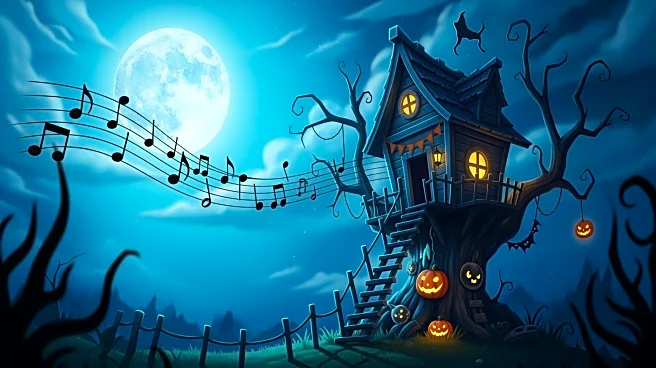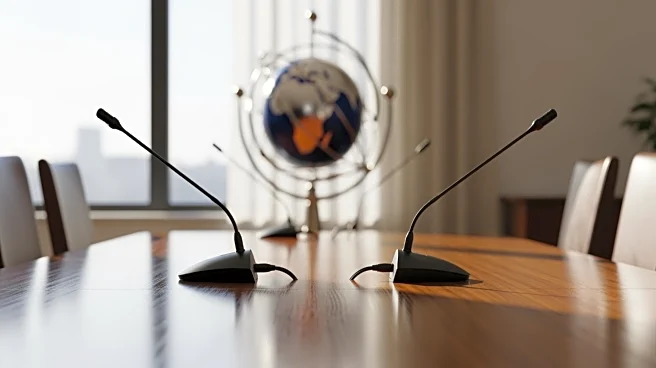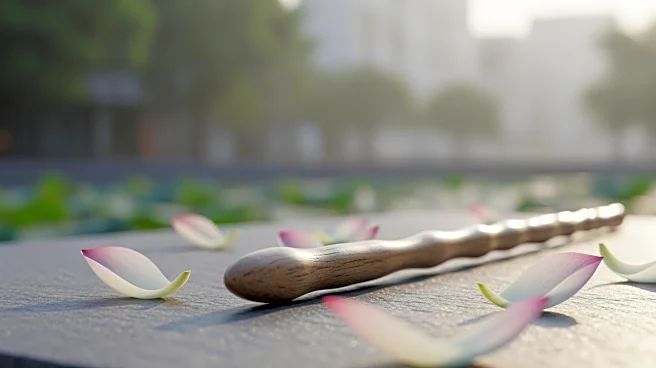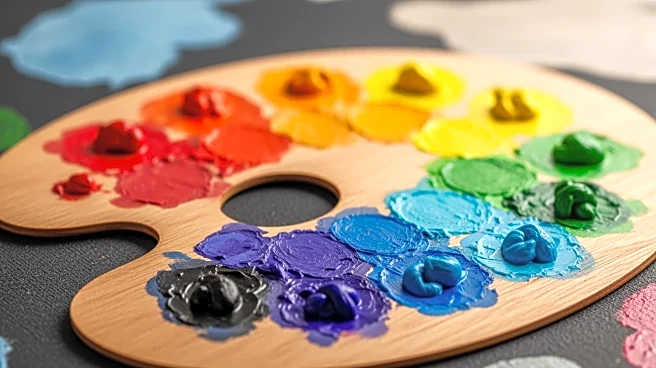What's Happening?
The iconic TV show 'The Simpsons' has partnered with Bleeding Fingers Music to create the score for its annual 'Treehouse of Horror' episode. This collaboration follows the departure of long-time composer
Alf Clausen, who was replaced due to cost concerns. Bleeding Fingers, a composer collective founded by Hans Zimmer, has taken over the musical responsibilities, bringing a fresh approach while maintaining the show's musical legacy. The episode features a live orchestra and unique instruments like the theremin, adding depth to the show's Halloween special.
Why It's Important?
The collaboration between 'The Simpsons' and Bleeding Fingers highlights the evolving landscape of television music production. By involving a composer collective, the show benefits from a diverse range of musical talents and styles, which can enhance the viewing experience. This partnership also reflects broader industry trends towards cost-effective yet high-quality production methods. For fans, the music is an integral part of the show's identity, and maintaining its quality is crucial for preserving the show's legacy.
What's Next?
As 'The Simpsons' continues to evolve, future episodes may see further innovations in musical composition, potentially incorporating more live performances or experimental sounds. The success of this collaboration could influence other long-running shows to explore similar partnerships, balancing tradition with innovation. Additionally, the show's producers might consider live concerts of the music, as suggested by creator Matt Groening, offering fans a new way to engage with the series.
Beyond the Headlines
The transition from Alf Clausen to Bleeding Fingers raises questions about age discrimination in the entertainment industry, as Clausen's departure was partly attributed to his age. This situation underscores the need for the industry to address such issues and ensure fair treatment of veteran professionals. Moreover, the use of live orchestras in television scoring highlights the ongoing debate between digital and traditional music production methods, with implications for the future of the industry.









